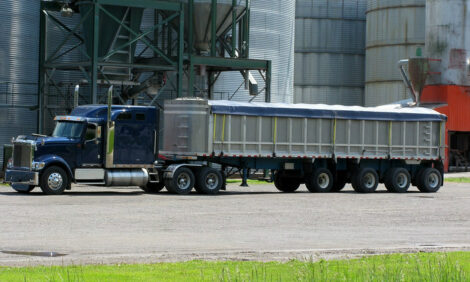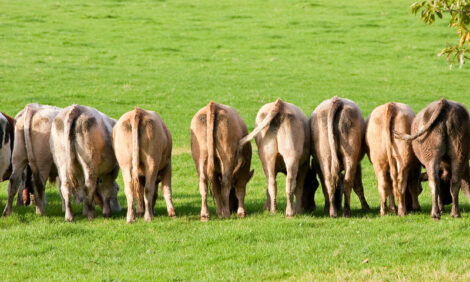



Milk Price Pressure Hits Latvia
LATVIA - At a meeting between the European Milk Board (EMB) and a milk producer from Latvia it became obvious that the downward pressure on prices is also exerting a strong influence on the Latvian market.Dace Pastare is a determined woman who does not mince her words when getting to the heart of the matter. “When the quotas are abolished in 2015, the dairy market will collapse with a big bang.” The milk producer and Chair of the Board of the Latvian co-operative drove a good 1,000 kilometres from the Latvian town of Valmiera last month to meet the EMB in Gdansk for two hours. She wants to find out more about the European milk producer association and to report on the situation in Latvia.
The Latvian producers already have to cope with falling milk prices. “The highest farm-gate prices was 32.7 cents in January, they are now only 29 cents at the most,” Dace Pastare informs the EMB. Despite the unstable situation she, along with fellow members of the co-operative, is trying to achieve a half-decent price for the members. The co-operative collects the milk from its 60 producers to sell it pooled to dairies at fair terms and conditions. But that is a difficult undertaking, day in day out. “The selection of dairies to work with is very limited, so the producers’ bargaining position is very restricted,” she said.
There is little difference between the situation in Latvia and in other European countries. That is why the EMB’s work is aimed at introducing a monitoring system which allows a close eye to be kept on supply and demand in the EU market. The idea is to take this monitored data and manage supply in such a way that it invariably meets current demand, and that damaging surplus volumes are no longer produced. For surplus volumes would result in a rock-bottom milk price. The monitoring system can bring about a fair price for producers and consumers. Dace Pastare finds this approach “very interesting” and is determined to report back to her Latvian colleagues about it.
“Our situation is problematic and we need European support to push our politicians in the right direction.”
TheCattleSite News Desk


